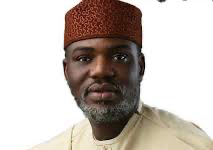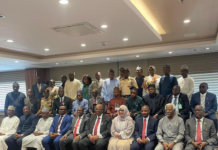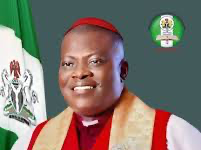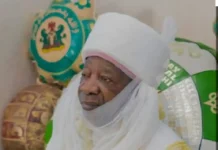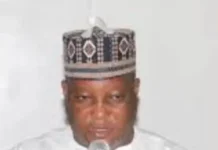EFCC and need for ‘due diligence’ in anti-graft war
Jesusegun Alagbe
POLITICS DIGEST – JESUSEGUN ALAGBE writes on the need for the Economic and Financial Crimes Commission to improve its strategy in the fight against graft.
Following a 13-month investigation, officials of the United States Federal Bureau of Investigation, on August 6, 2019, arrested celebrated Nigerian entrepreneur, Obinwanne Okeke (also known as Invictus Obi), and charged him with two counts of computer and wire fraud.
According to the charges, Okeke and his syndicates defrauded American citizens up to $11m (N4.5bn) through fraudulent wire transfer instructions in a massive, coordinated, business e-mail compromise scheme.
After about a two-year trial, Okeke pleaded guilty to the charges on February 16, 2021, and was sentenced to 10 years in a US prison.
Before his arrest and conviction, Okeke operated a globally-renowned business that had investments in oil and gas, agriculture, private equity, alternative energy, telecoms and real estate. He operated his holdings under the Invictus Group, with branches in Nigeria, South Africa and Zambia.
Also, in a similar operation on August 22, 2019, the FBI announced charges against 80 people, most of them Nigerians, in a wide-ranging fraud and money laundering operations that netted millions of dollars from victims of Internet con jobs.
The FBI declared a 252-count grand jury indictment charging the suspects for participating in a massive conspiracy to steal about $46m (N18.9bn) through a variety of fraud schemes.
The defendants allegedly laundered the funds through a Los Angeles-based money laundering network.
Also, in June 2020, the Dubai Police Force, in conjunction with the FBI, arrested 12 suspected Nigerian fraudsters living in the United Arab Emirates as part of their special operation dubbed “Fox Hunt 2.”
Six raids were conducted concurrently while the suspects were asleep, and among several items, the Dubai police reportedly seized more than $40m (N16.4bn) in cash and hard disks containing the addresses of nearly two million victims.
Among the suspected fraudsters arrested was Ramon Abbas (popularly known as Hushpuppi), a social media celebrity known for flaunting his opulent lifestyle on Instagram and Snapchat with posts of him in luxury cars, private jets, and designer clothes.
He attended high-powered fashion shows and dinners with celebrities, soccer stars and Nigerian politicians.
According to investigators, Abbas’s social media accounts on Instagram and Snapchat were used to track and confirm his whereabouts, as well as gather evidence to charge him.
Snap Inc (owners of Snapchat), Instagram and Apple were said to have provided records for the investigation that helped the FBI to nail Abbas.
Perhaps most notably, Abbas was among other charges accused of a scheme to steal $124m (N51bn) from an English Premier League soccer club in May 2019.
Also, on May 14, Abidemi Rufai, Ogun State Governor Dapo Abiodun’s aide, was arrested in New York for alleged conspiracy, wire fraud and aggravated identity theft.
Rufai, aka Sandy Tang, was charged with defrauding the Washington State Employment Security Department of over $350,000 (N144m).
US authorities said since they got fraud reports in April 2020, they had “worked diligently” to track down the criminals who stole funds designated for the COVID-19 pandemic relief.
In some way, the Economic and Financial Crimes Commission has the same goal as the FBI, which is the US’ lead federal agency for investigating cyber attacks and intrusions among other crimes.
However, experts say the manner and methodologies through which the FBI operates should be a source of envy for the EFCC – a position based on the latter’s alleged shoddiness while carrying out certain investigations.
For instance, on April 21, the EFCC arrested popular Instagram comedian and social media influencer, Nwagbo Chidera (aka Pankeeroy), for alleged Internet fraud. A photo post by the EFCC on social media showed the comedian bearing the charges levelled against him.
According to the EFCC, the comedian posed as a vendor who redeems bitcoin vouchers using a platform to defraud his unsuspecting victims.
The anti-graft agency stated this in a statement titled, ‘EFCC Arrests Instagram Comedian for Alleged Internet Fraud in Lagos.’
However, on May 27, barely a month after his arrest, the comedian was released as, according to a statement by his legal team, there was no petition against him prior to his arrest.
He also dismissed speculations of his involvement in fraudulent activities due to depression and frustration, saying his arrest was a case of being at the wrong place at the wrong time.
He also dismissed the allegations that a Mercedes-Benz AMG, worth around N36m, and N22,300,000 worth of Bitcoin were recovered in his name – saying he did not own any of the things.
The manner in which the EFCC arrested Pankeeroy was considered “too sloppy” by a social commentator and lawyer based in Lagos, Mr Charis Esemokhai, who said the anti-graft agency should have done “a thorough job” and gathered enough evidence before making such an arrest.
He said, “The EFCC has been sloppy on some occasions. Sometimes, one wonders if the agency carries out what we call due diligence before carrying out an operation. It is expedient that such an agency should properly gather enough evidence on a suspect before arresting him.
Read Also:
“If you look at the way the FBI and Dubai Police arrested Hushpuppi and other Nigerians alleged of fraud, there was sufficient evidence to nail those guys. They can’t escape police net because of the overwhelming evidence. This is the methodology the EFCC should also adopt.”
Esemokhai also referenced a June 18, 2021 announcement by the EFCC Chairman, Abdulrasheed Bawa, that the agency investigated a female minister who laundered $37m (N15bn) through a property deal.
Bawa had while marking his 100 days in office described the real estate sector as one with grand-scale corruption in the country, saying about 90 to 100 percent of resources were being laundered through the sector.
The EFCC chairman did not, however, disclose the identity of the suspect or whether she is a current or former minister.
“We investigated a matter in which a bank MD (Managing Director) marketed (a piece of) property to a minister and agreed to purchase it at $37.5m (N15bn). The bank then sent a vehicle to her house to evacuate $20m (N8.2bn) from her house in the first instance,” Bawa said.
Although such an investigation should be lauded, another social commentator and policy analyst based in Abuja, Dr Kunle Abayomi, said the EFCC needed to be more painstaking in its investigations so there would be “no escape way” for criminals.
“I think the EFCC shouldn’t be making big statements on cases that have yet to be concluded. In other climes, anti-graft agencies go after suspects when they are sure they have damning evidence on them. Arresting a suspect before gathering evidence is the worst way to fight crime,” he said.
“There have been similar incidents in the past whereby the EFCC would arrest people and then free them because there was no sufficient evidence to nail them. Going forward, the EFCC should be more patient and meticulous in their approach to fighting anti-corruption cases,” Abayomi added.
Another Lagos-based lawyer, Mr Tunde Anwo, said although the EFCC had been a vocal agency in the fight against corruption, it needed to be more methodological in its investigations.
“The agency has actually done a lot of good job in the fight against corruption, but if it wants better results in terms of conviction of suspects, it needs to adopt better approaches like those of foreign agencies,” he said.
Findings by Sunday PUNCH showed that the EFCC had also lost many court cases due to insufficient evidence.
For instance, in May, the Lagos Division of the Court of Appeal dismissed an appeal filed by the EFCC against an order directing the commission to unfreeze the frozen account of a Senior Advocate of Nigeria, Chief Mike Ozhekome.
The appellate court in a unanimous judgement delivered by Justice Chidi Uwa, Justice Tunde Awotoye, and Justice James Abundaga, held that the appeal lacked merit.
Justice Abdulazuz Anka of the Federal High Court in Lagos had on April 3, 2017 lifted a restraining order earlier placed on the Guaranty Trust Bank account of Ozekhome stopping him from accessing the N75m he received from a former Ekiti State Governor, Ayodele Fayose.
Justice Anka, while ruling on an application brought by Ozekhome seeking to unfreeze the account, held that although it was not in doubt that the N75m came from Fayose, the lawyer could not be held liable because there was no restriction on the governor’s account at the time the money was paid to his law firm.
The anti-graft agency specifically claimed that the money, which was paid to Ozekhome as a legal fee by Fayose, was part of the N2.26bn arms procurement funds, which a former National Security Adviser, Col Sambo Dasuki (retd), allegedly looted from the Federal Government.
Similarly, in March, the Supreme Court ordered the EFCC to refund N9.6bn to a former Executive Director of First Bank Plc, Dr Dauda Lawal, who was being tried for money laundering charges.
The Supreme Court judgment brought to an end the trial by the EFCC against Lawal, which started in May 2016, when the anti-graft agency accused the banker of money laundering and obtaining monies suspected to be proceeds of crime.
In their 2018 research, ‘The Economic and Financial Crimes Commission and the Politics of (In)effective Implementation of Nigeria’s Anti-Corruption Policy, researchers Emilia Onyema, Pallavi Roy, Habeeb Oredola, and Seye Ayinla expressed concern that although the EFCC had been instrumental in charging and prosecuting politicians and businessmen involved in graft, the agency was also subjected to frequent political interference, which reduces its effectiveness.
The researchers also stated that challenges such as poor funding and inadequate technical capacity might be hindering the anti-graft agency from doing its job efficiently.
They said, “Senior-level functionaries of the EFCC are perceived as being not immune to political pressure, which is one reason why the commission has not been able to function credibly, while operational inefficiencies caused by insufficient funding and lack of technical capacity and expertise among staff also undermine the effectiveness of the commission.
“The weakness of the institution further manifests in the failure of the EFCC to conduct thorough criminal investigations and the resulting inadequacies of criminal prosecutions that are struck out on technicalities.”
To find a solution to the challenges, the researchers urged the EFCC to make efforts to identify skill sets that are needed and that are more relevant to the anti-graft agency’s officials.
They also advocated that targeted and bespoke training programmes should be designed to fill the skill gaps that had been identified.
Meanwhile, Anwo, the Lagos lawyer, said the EFCC should not be discouraged from doing its job but should rather “conduct due diligence” before making cases against suspects.
“They will record more feats adopting better strategies,” he added.








